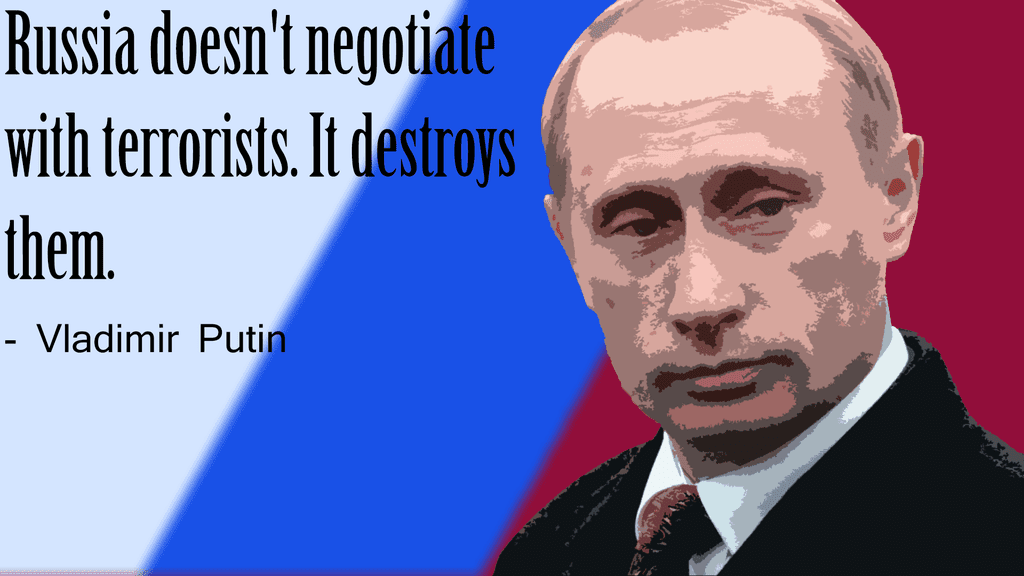
Updated May, 2023
American Dominance Ends: A Fiery Exchange between Putin and the Obama Administration
In the ever-shifting landscape of global politics, a fiery exchange took place that shook the very foundations of what was once considered “American dominance.” It was a clash of two giants, President Vladimir Putin of Russia and the Obama administration, that sent shockwaves through the corridors of power, reverberating across the world. The Western media found itself caught in the crossfire of a battle that appeared futile, struggling against the backdrop of influential forces – the Neocons and the Zionists – who seemed to be steering the course of the conflict.
The year was 2014, a period of escalating tensions, political brinksmanship, and tit-for-tat sanctions. In this unfolding drama, Putin made it resoundingly clear that he had had enough of the United States and Western Europe. What ensued was a monumental clash of ideals and ambitions, one that exposed the fragility of “American dominance” in the face of a resolute Russia.
The West, it seemed, had not yet comprehended the unyielding nature of Putin. The attempts to intimidate him through organizations like NATO, which were designed for dealing with weaker and defenseless nations, proved to be a miscalculation. The global balance of power was shifting, and Putin was keenly aware that even the United States could not mount a credible challenge against Russia. The video footage from this period serves as a stark reminder of just how much respect Russia had lost for the United States and its Western allies.
In this narrative, we will delve deep into the intense exchange between Putin and the Obama administration, unraveling the intricacies of the clash that led to the erosion of American dominance. To comprehend the gravity of this pivotal moment in modern history, we must journey through the historical context, dissect the players involved, and analyze the geopolitical fallout.
The Geopolitical Chessboard
To understand the dynamics of this exchange, we must first step onto the sprawling chessboard of geopolitics. “American dominance” was a term often thrown around, but it had its roots in the post-World War II era when the United States emerged as the undisputed superpower. The collapse of the Soviet Union in 1991 further solidified this position, allowing the United States to dictate the terms of international relations.
However, the world was changing, and the winds of global power were shifting. Russia, emerging from the chaos of the 1990s, began to reassert itself on the international stage. Under Putin’s leadership, Russia transformed from a weakened and uncertain state into a confident and assertive actor. This transformation disrupted the unipolar world order that the United States had grown accustomed to.
In the United States, the Obama administration faced the daunting task of managing this evolving landscape. The promise of a “reset” in relations with Russia had given way to a series of crises, including the conflict in Ukraine, which brought the two nations to the brink of open confrontation. The world watched as the United States and Russia engaged in a high-stakes game of geopolitical chess.
The Firebrand of Putin
Vladimir Putin, a man of immense complexity and conviction, emerged as the focal point of Russia’s resurgence. With a background in the KGB and a deep sense of Russian patriotism, Putin was determined to restore Russia’s standing on the world stage. He viewed the post-Soviet era as a period of humiliation and loss of prestige for Russia. To rectify this, he adopted an assertive foreign policy, often drawing the ire of Western leaders.
Putin’s relationship with the United States had its ups and downs. His early years in power saw a degree of cooperation, including support for the U.S.-led War on Terror. However, tensions began to simmer as Putin grew increasingly wary of what he saw as Western encroachment on Russia’s sphere of influence. This simmering tension reached a boiling point during the Ukrainian crisis, where Russia’s annexation of Crimea led to a deep freeze in relations.
The West perceived Putin as an aggressor, while Putin saw himself as a defender of Russian interests. The annexation of Crimea, in particular, was seen as a direct challenge to the post-Cold War order, one where borders were considered sacrosanct. The fiery rhetoric from the Obama administration and its European allies only served to escalate the situation.
The Clash of Titans
It was in this cauldron of geopolitical tension that the clash between Putin and the Obama administration unfolded. The United States, guided by President Barack Obama, had to navigate a complex and rapidly changing global landscape. As the leader of the world’s preeminent superpower, Obama was tasked with maintaining the perception of American dominance.
However, Putin’s Russia was not a force to be trifled with. As the video below illustrates, the respect for the United States and NATO was waning in Moscow. The United States had been accustomed to wielding its military and economic might to shape global events, but in this clash, it was faced with a resolute adversary that could not be easily cowed.
The exchange between Putin and the Obama administration was not merely a war of words; it was a reflection of a broader struggle for influence and dominance. The rhetoric and actions of both sides had far-reaching implications, and the world watched with bated breath.
The Deteriorating Relationship
The deterioration of the U.S.-Russia relationship was marked by a series of critical events, each contributing to the overall discord. The first major rift came with the 2008 war between Russia and Georgia, where the United States firmly sided with Georgia. This set the stage for future conflicts and established a pattern of U.S. support for nations in Russia’s backyard.
The turning point, however, was the Ukrainian crisis that began in late 2013. Ukraine had long been a battleground for influence between Russia and the West, but it was the decision of the Ukrainian government to abandon an EU trade deal in favor of closer ties with Russia that set off a chain of events. Mass protests, known as the Euromaidan, erupted in Ukraine, leading to the ousting of President Viktor Yanukovych. Russia, fearing the loss of Ukraine to Western influence, annexed Crimea in early 2014.
The response from the Obama administration was swift and severe. Sanctions were imposed on Russia, and the U.S. led efforts to isolate Moscow diplomatically. The rhetoric from both sides became increasingly acerbic. The world had not witnessed such a direct clash between Russia and the United States since the days of the Cold War.
The Power Play: Crimea’s Annexation
The annexation of Crimea stands as a watershed moment in the Putin-Obama clash. It was a swift and calculated move that sent shockwaves across the globe. The Russian military moved in, and Crimea, historically part of Russia, was absorbed into the Russian Federation. The international community, led by the United States and the European Union, condemned this action as a violation of Ukrainian sovereignty and international law.
Putin defended the annexation of Crimea by citing historical ties, the Russian-speaking population of Crimea, and the strategic importance of the region, home to Russia’s Black Sea Fleet. He framed the move as a response to what he saw as Western interference in Ukraine’s internal affairs. The annexation of Crimea was a bold assertion of Russian power and influence in the face of Western opposition.
The United States, in response, imposed sanctions on Russia, targeting key individuals and sectors of the Russian economy. The European Union followed suit with its own sanctions. The world watched as the two sides engaged in a high-stakes game of economic and political brinksmanship.
The War of Words
As the situation in Ukraine escalated, so did the war of words between Putin and the Obama administration. In a speech to the Russian Federal Assembly, Putin defended the annexation of Crimea and lashed out at the West. He accused the United States of trying to “remake the whole world” and of hypocrisy in its foreign policy. Putin’s rhetoric was seen as confrontational and unapologetic, signaling his defiance of Western pressure.
On the other side of the Atlantic, the Obama administration responded with its own strong rhetoric. President Obama, in a press conference, stated that “Russia stands alone” and warned of the economic consequences of its actions. He reaffirmed the commitment of the United States to defend its NATO allies and uphold the international order. The message was clear: the United States would not tolerate Russia’s actions.
The war of words extended beyond official statements. Media outlets in both Russia and the United States played a role in shaping public opinion and fueling the conflict. The narrative on both sides portrayed the other as an aggressor, with little room for compromise or dialogue.
The Implications for American Dominance
The clash between Putin and the Obama administration had significant implications for the notion of “American dominance.” The United States had long been seen as the world’s preeminent superpower, able to shape global events and influence international affairs. However, the clash with Russia revealed the limitations of American power.
One key aspect of American dominance had been its ability to rally its allies and partners to its cause. The NATO alliance, in particular, had been a cornerstone of U.S. foreign policy. However, in this clash, the limitations of NATO’s power became apparent. NATO was designed to deal with external threats, but the crisis in Ukraine was a complex internal issue. The alliance found itself unable to prevent Russia’s annexation of Crimea or halt the conflict in Eastern Ukraine.
Additionally, the economic sanctions imposed by the United States and the European Union had an impact, but they did not force Russia to capitulate. Russia’s economy adapted to the new reality, and the sanctions had unintended consequences for Western businesses and economies. The clash with Russia highlighted the limits of economic coercion as a tool of statecraft.
Furthermore, the clash with Russia exposed the fragility of the post-Cold War order. The notion of borders as inviolable had been a fundamental principle of the international system. The annexation of Crimea challenged this principle, and the world found itself grappling with a new reality where force could redraw borders.
A Wary World
The world watched as the exchange between Putin and the Obama administration unfolded. It was a period of uncertainty, where the specter of a new Cold War loomed large. Nations across the globe had to reassess their own alliances and positions in this shifting landscape.
In Europe, the clash had profound implications. Eastern European nations, once under Soviet influence, were now part of the European Union and NATO. The conflict in Ukraine, with its echoes of the past, led to a renewed sense of insecurity. NATO allies in Eastern Europe sought reassurances from the United States, and the alliance itself undertook a process of reevaluation and adaptation.
In the Middle East, the clash had a direct impact on the Syrian civil war. Russia, a long-time ally of the Assad regime, increased its military involvement, while the United States supported anti-Assad forces. The two superpowers found themselves in indirect conflict in Syria, leading to a complex and volatile situation.
In Asia, the clash had repercussions as well. China, with its growing influence and territorial disputes in the South China Sea, watched the situation closely. The ability of the United States to effectively manage its relationship with Russia became a barometer for how it might handle its relations with China.
The Ongoing Legacy
The clash between Putin and the Obama administration in 2014 was a turning point in global politics, and its legacy continues to shape international relations. While the direct confrontation between the two leaders may have subsided, the broader issues at play remain unresolved.
The conflict in Ukraine, for example, continues to simmer, with periodic flare-ups of violence in Eastern Ukraine. The Minsk agreements, aimed at bringing a peaceful resolution to the conflict, have yet to be fully implemented. Ukraine remains a focal point in the broader struggle between Russia and the West.
The issue of Crimea, too, remains a contentious one. Russia’s annexation has not been recognized by the international community, and the status of the region remains a point of tension between Russia and the West. The annexation challenged the fundamental principles of the post-Cold War order, and its consequences continue to reverberate.
The clash also had a lasting impact on the way the world views American dominance. It highlighted the limitations of U.S. power and the complexities of modern geopolitics. The idea that the United States could unilaterally shape global events was called into question. The clash with Russia served as a reminder that the world is a multipolar one, with multiple centers of power and influence.
In conclusion, the exchange between Putin and the Obama administration in 2014 was a pivotal moment in modern history, marking a significant challenge to the concept of “American dominance.” It showcased the changing dynamics of global politics, the resoluteness of Putin’s Russia, and the complexities of modern geopolitics. The clash left a legacy of unresolved issues and raised important questions about the future of international relations. The world continues to grapple with the repercussions of that fiery exchange, and its implications will shape the course of global politics for years to come.
Is change in the Air?
The days of American dominance are over, and we now live in a world with multiple powers where China and Russia, united, could completely dismantle the United States. These two nations have been driven into each other’s arms by the United States, and they will not back down; in fact, they will challenge and demonstrate to the world at every turn just how insignificant America is. Russia will dominate the scene in the Middle East, and China will rule the South China Sea completely. Russia has thrown its support behind China, and China is backing Russia in the Middle East. The game is over for the United States, and the wise thing to do now is to repair ties and collaborate rather than attempt to intimidate nations that are no longer afraid of the bully and are eager and happy to take the bully down.
Additional thoughts
Some may question why we cover political and health issues alongside financial news. The answer is simple: everything is connected, and free market forces no longer exist. In today’s world, information is manipulated in various ways, from the food we eat to the data we receive. Being aware of this interconnectedness allows us to plan accordingly. Many people struggle to find solutions because they fail to understand the problem. That’s why our financial website covers a broad range of seemingly unrelated topics, all deeply intertwined. By studying mass psychology, we can identify abnormal levels of manipulation that impact society. We encourage you to explore Plato’s work and join us in staying informed about these critical issues—Plato’s allegory of the cave.
Other Stories of Interest

How To Get Financial Freedom: Escape the Herd for Lasting Success

Legalized Food Poisoning: America’s Toxic Diet by Design

“””Investing for dummies”””: Follow The Trend

Executive Compensation Driving Share Buybacks

Illusions of Economic Recovery: Negative Interest Rate Controversy

Mastering the Trading Range: Unlocking the Potential for Explosive Gains

The Golden Symphony: Unveiling the Dynamics of the Gold to Silver Ratio

Inside the Market Psychology Cycle: Unveiling Trends and Tactics

South China Sea Showdown: Intensifying Heat on the Horizon

Will the Stock Market Crash: Analyzing Possibilities and Implications

China Quantitative Easing: Battling Economic Slowdown

What is Data Manipulation: The Dark Side?

Corruption in China: Government’s Aggressive Crackdown on Wrongdoings

These Are The Things That Scare Americans The Most

Exotic Art: The Fusion of Art and AI Brilliance


